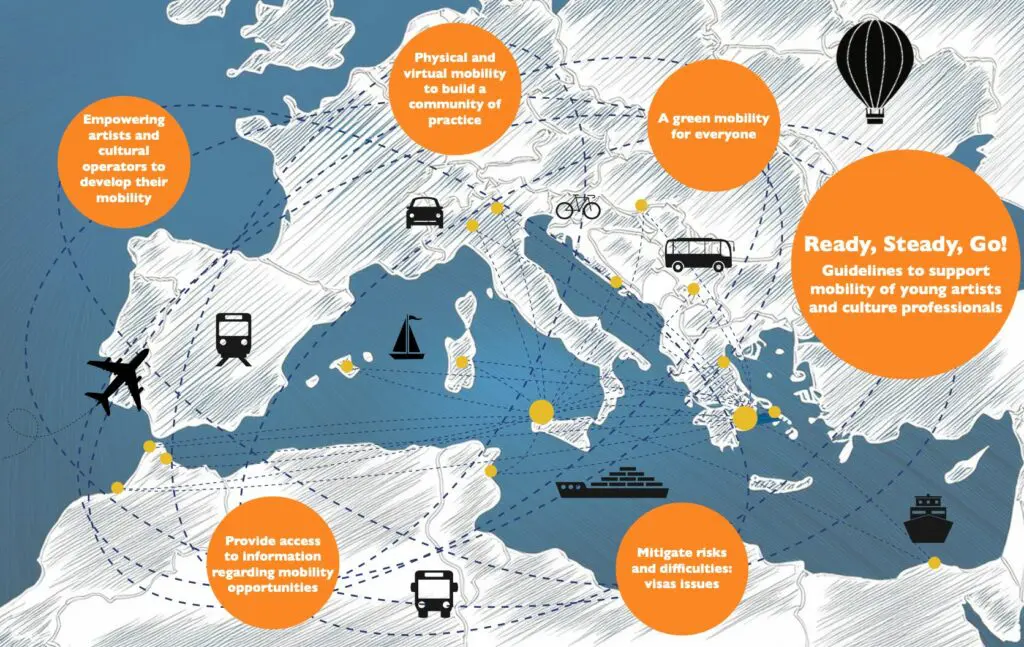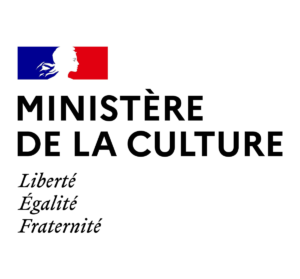Ready Steady Go! : Guidelines to support mobility

Ready Steady Go! is a 10-month capacity-building programme developed by Roberto Cimetta Fund, in partnership with Liv.in.g, Busart as well as Al Badil and Amuni. It includes two live workshops in Palermo (Italy) and Elefsina (Greece), as well as five virtual mobility sessions. The programme aims to enhance the mobility of young artists and culture professionals based in remote Mediterranean areas, such as islands, rural regions, and cities with fewer than 80,000 inhabitants.The project seeks to improve young participants’ access to the labour market by fostering their engagement with the international cultural scene, largely considered a crucial aspect of career development. This document is based on feedback and insights gathered from participants and partners during the project. It offers recommendations for designing mobility funding and international support schemes targeted at young artists and culture professionals in remote Mediterranean areas.
MOBILITY: A TENTATIVE DEFINITION
Mobility is an essential component for artists and culture professionals to exchange ideas and practice, and to increase professional opportunities. Set as a human right by Article 13th of the Universal Declaration of Human Rights, mobility is an essential component in the career path of artists and cultural actors (On the Move, 2018). It fosters fruitful exchanges, provides training and expands professional possibilities, and gives the opportunity to explore new narratives. Intended primarily as a temporary cross border mobility, it is the sine qua non condition that allows some artists to earn a living from their artistic or cultural work. However, the mobility of young artists and cultural operators based in the Mediterranean, particularly in remote areas, is constrained: they suffer from structural inequalities, such as few job and networking opportunities at home, and often lack the skills to enter the international scene. Mobility funders and players offering international support schemes miss opportunities to meet and exchange with young artists and cultural operators based in Mediterranean remote areas, which makes it challenging to design activities that meet their needs. Before COVID-19, cultural operators faced challenges such as inadequate travel infrastructure, scarce mobility funding, and political and economic barriers.The post-pandemic era demands a re-evaluation of modalities and approaches that take into account living, working, and travel practices, that emphasize digital transformations including new meeting formats, and that integrate the environmental dimension and climate change. Given that mobility significantly contributes to carbon emissions, there is a pressing need to redesign funding schemes and support initiatives that promote a more sustainable mobility plan. However, such schemes should consider disparities in transportation options and contexts between the so-called ‘connected’ areas and marginalised/remote areas, and propose tailored solutions: for cultural workers in the South and East Mediterranean, international mobility is especially difficult due to their reliance on air travel and inadequate infrastructures. Indeed, “green mobility” may be defined differently from a context-perspective and based on the profile of those going on mobility. Ready Steady Go! Participants have defined it in the Elefsina workshop as:
“… a concept about moving as well as attenuating the footprint on the planet, making it a good journey for the traveller and for the environment. It prioritises sustainability and environmental responsibility through methods that minimise carbon emissions, that involve relying on the digital to reduce paper consumption, and that take ethical and social issues into account…green mobility is a necessity for nature but it can come with associated costs and sometimes it can be expensive”.
“Sustainable mobility is a paradigm that challenges the status-quo asking us to perceive the self in a relation of co-dependence, caring and responsibility [between] the human and non-human, the global and local environment”. “Green mobility means developing intersectional awareness related to the complexities of the contexts and beyond; to cooperate on priorities to impact the present in order to build a better future”.
GUIDELINES
The following guidelines are the result of insights gained during the implementation of the Ready Steady Go! project.They are by no means exhaustive and are based on the experience acquired through the project and through exchanges between partners and participants.They highlight some key priorities essential for players whose mission includes supporting young artists and cultural operators’ mobility project, especially those living in remote areas.There is still much work to be done to guarantee a fairer and easier access to mobility to those who are generally excluded. One good place to start is to engage in active listening and understanding the context as a prerequisite for providing effective and creative solutions.
Read the guidelines by clicking the button below.











